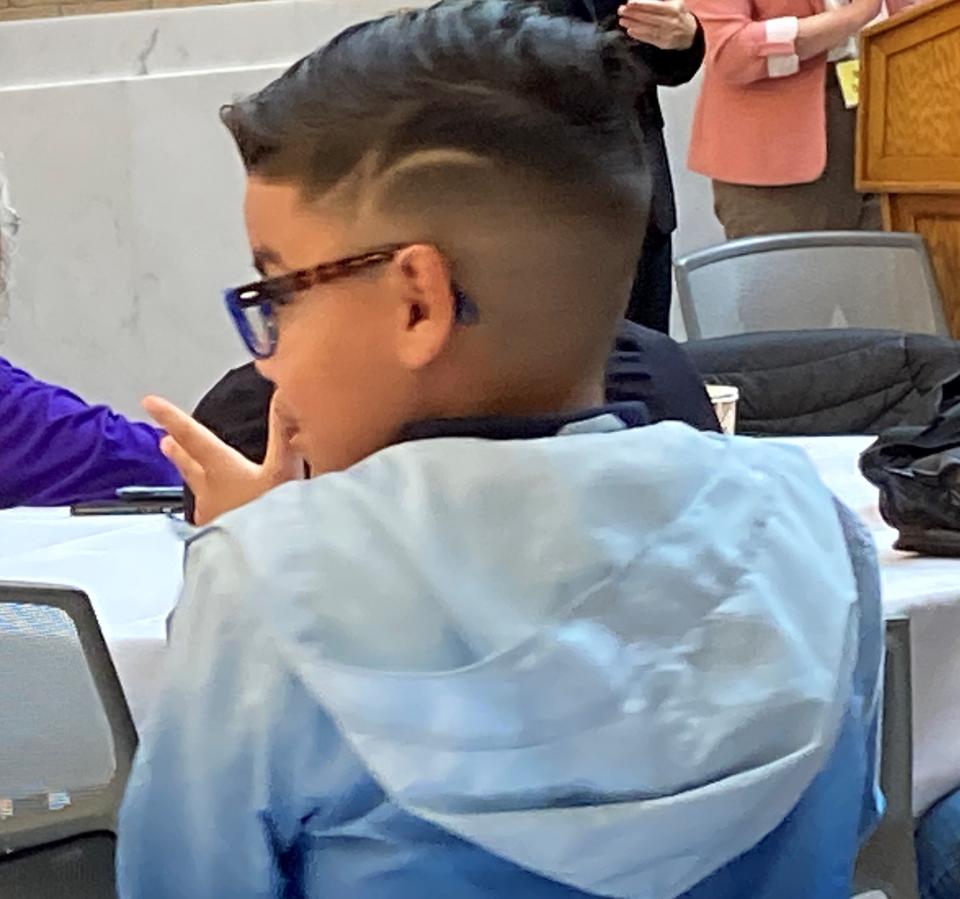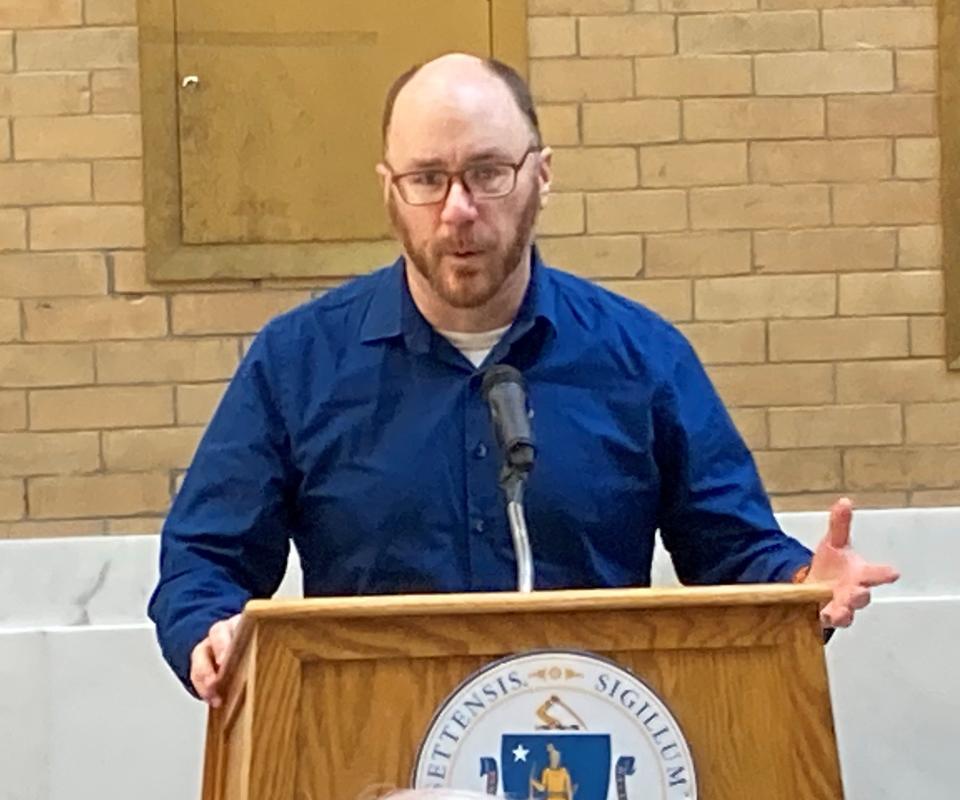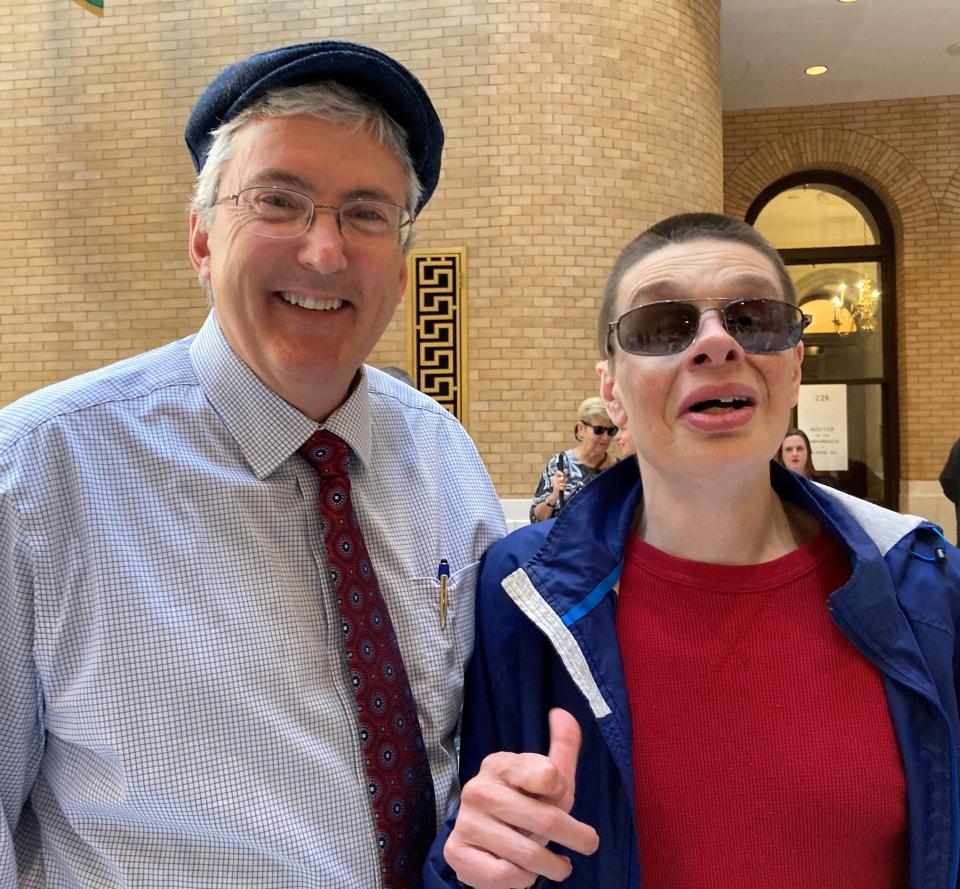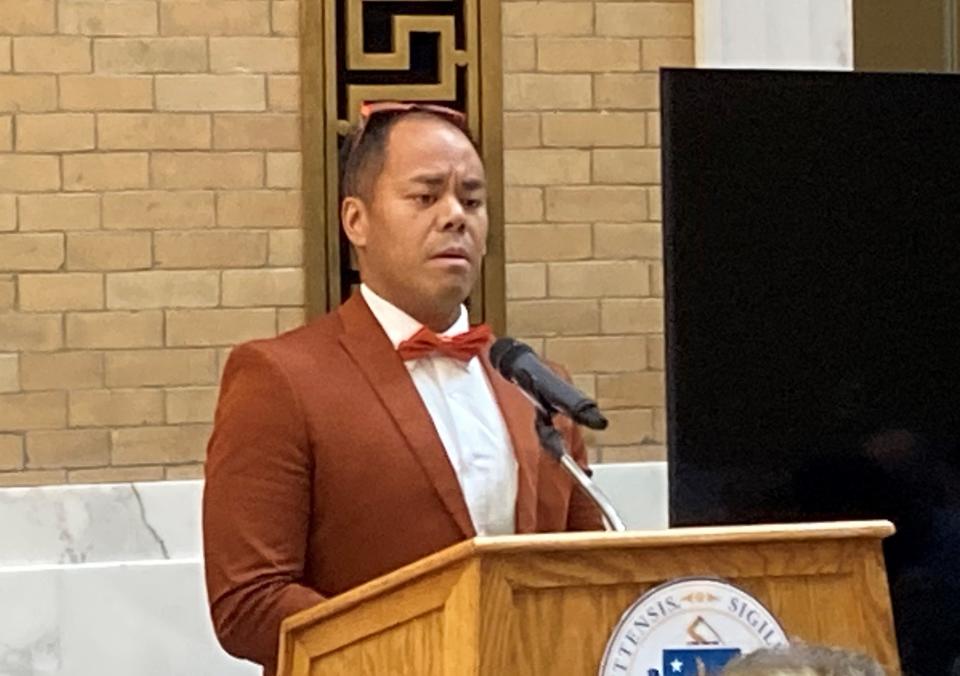'Use your courage,' visually challenged advocate urges on White Cane Awareness Day
BOSTON - The best advice given to the visually challenged Massachusetts residents and advocates for the community attending White Cane Awareness Day Friday at the State House was from an 8-year-old student who attends the Witchcraft Heights Elementary School in Salem.

JJ Reyes told a room full of state and city officials, state legislators and even the head of the Massachusetts Commission for the Blind to “use your courage. I use it to help me use my white cane. I use it a lot,” Reyes said.
Reyes' comments were designed to encourage speakers, some of whom talked about their reluctance to use a white cane in their daily lives for fear of being labeled as less than, for fear of being targeted as vulnerable, or because they had yet to come to terms with their loss of vision.
The white cane is an internationally recognized tool that allows visually challenged people to navigate their personal and public spaces.

One of the speakers who discussed their reluctance to use a white cane was Kyle Robidoux the assistant director of housing sustainability in Boston and an avid runner who was diagnosed with retinitis pigmentosa, a degenerative eye disease, when he was 11.
“I put off using a white cane for as long as I could,” Robidoux said, adding that even after he had been through mobility and orientation training, he still eschewed his white cane. It wasn’t until he realized its importance as a tool that afforded him independence, confidence and self-reliance that he embraced the white cane.
“I go out every day, I commute downtown, I go to my daughter’s school,” Robidoux said. It was the white cane that gave him that sense of confidence and stability.
Reyes, who confidently applauded, calling out “This is awesome” at intervals during the speeches, has been using his white cane for five years. Reyes and two of his friends, Henry and Eli, all three experiencing visual challenges, were excused from classes Friday to attend the event with their teachers and orientation and mobility coaches.
“I have been doing orientation and mobility since I was 3,” Reyes said proudly and explained their presence at the State House. “We’re not a family,” he said, “but we’re all friends and we’re having fun celebrating White Cane Day. I was so excited getting ready for this holiday.”
While not a state holiday, it has been officially designated as a state observation by Gov. Maura Healey, who signed a proclamation declaring Sunday White Cane Awareness Day throughout the commonwealth. It coincides with the national recognition of the day.
In designating an official day, Healey recognized the 30,000 Massachusetts residents who are visually challenged. It also serves to remind Bay State motorists that by law they must come to a full stop at crosswalks or wherever they see someone attempting to cross the street wielding a white cane.
The declaration in part states that the white cane provides freedom and independence for residents to move safely about their homes, office spaces, neighborhoods and around the world.
“It’s an incredibly important day to ensure that residents are aware of the law,” said Sen. Robyn Kennedy, D-Worcester. “It’s important for officials and policymakers to understand that Massachusetts must be fully accessible for every member of the community.”
The Worcester legislator spoke of participating in a White Cane Awareness Day event in the past. She wore a blindfold and walked with a sighted guide. The experience, Kennedy said, was revelatory.
“We can all strive to make our communities safer, more accessible and welcoming to all,” Kennedy said.

Service providers attended the gathering. Representatives of the MBTA had information about The Ride, with pamphlets and booklets about the urban transportation system available in Braille. The Perkins School for the Blind had a table, promoting its library and the need to teach the Braille alphabet to youngsters.
Harry Duchesne of the Audio Journal, based in Worcester, brought his volunteer meteorologist Bill Ruggiero to the event to promote the service. The Audio Journal is a member of the Massachusetts Audio Information Network. The broadcast for the blind can be heard on the radio, through its website, an app and through a smart assistant like Alexa.
“I got involved with the Audio Journal years ago,” said Ruggiero. The visually impaired volunteer memorizes the weather forecast, records it and sends the information to the Audio Journal and the Seven Hills Aspire Radio Station. He also hosts a monthly talk show, “Talking Topics,” where he interviews people from all “walks of life.”
Ruggiero has yet to interview John Oliveira, the newly appointed head of the MCB, or Joe Buizon, the MCB director of programs and services.
“The white cane gives people the skills and ability to go where they want,” Oliveira said. “It makes Massachusetts a safer, more inclusive community for people who are legally blind.”

He is a strong advocate of teaching all visually impaired residents to use the cane, regardless of whether they also use a service animal.
“People need to keep their skills up for the days the dog is ill or if the dog dies,” Oliveira said.
Buizon demonstrated how he uses his cane at crosswalks, waving the tool straight up in the air and flailing it up and down. He admitted he sometimes used two canes, one on either arm, to help him be more visible. Drivers face penalties between $100 and $500 for failing to come to a full stop at crosswalks.
“I have to do what I have to do,” Buizon said, urging those in attendance to “be visible, be out and be seen.”
This article originally appeared on Telegram & Gazette: Maura Healey declares Massachusetts White Cane Awareness Day Sunday

